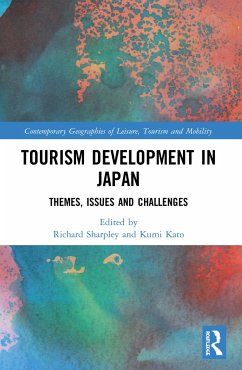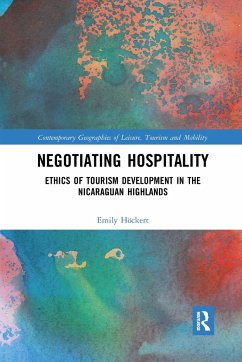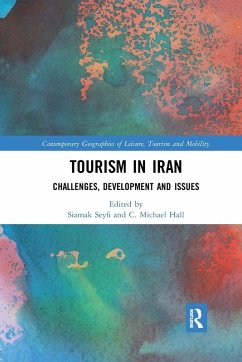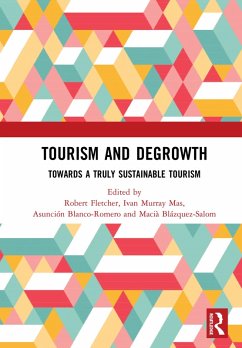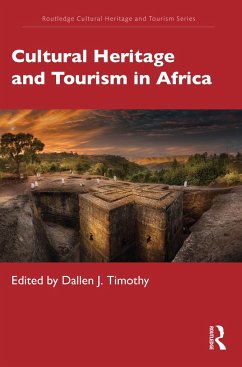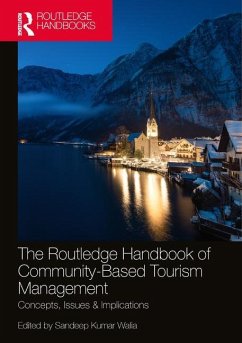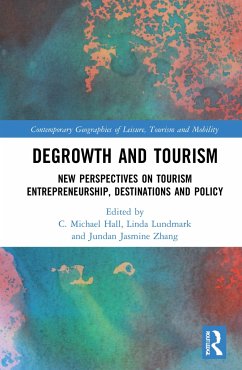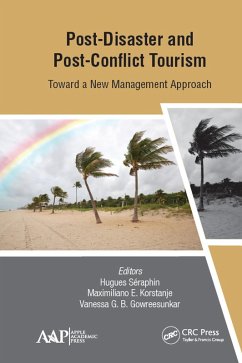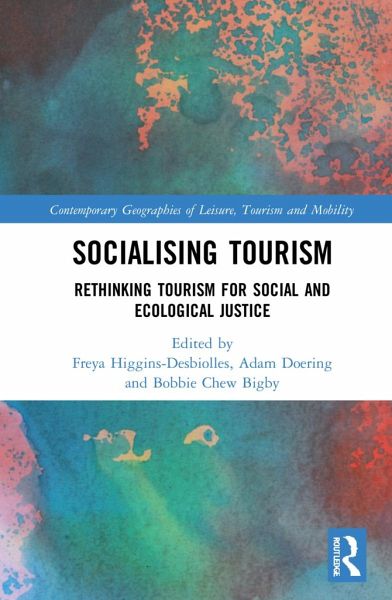
Socialising Tourism
Rethinking Tourism for Social and Ecological Justice
Herausgegeben: Higgins-Desbiolles, Freya; Doering, Adam; Chew Bigby, Bobbie
Versandkostenfrei!
Versandfertig in 6-10 Tagen
45,99 €
inkl. MwSt.
Weitere Ausgaben:

PAYBACK Punkte
23 °P sammeln!
Once touted as the world's largest industry and also a tool for fostering peace and global understanding, tourism has certainly been a major force shaping our world. The recent COVID-19 crisis has led to calls to transform tourism and reset it along more ethical and sustainable lines. It was in this context that calls to "socialise tourism" emerged (Higgins-Desbiolles, 2020). This edited volume builds on this work by employing the term Socialising Tourism as a broad conceptual focal point and guiding term for industry, activists and academics to rethink tourism for social and ecological justic...
Once touted as the world's largest industry and also a tool for fostering peace and global understanding, tourism has certainly been a major force shaping our world. The recent COVID-19 crisis has led to calls to transform tourism and reset it along more ethical and sustainable lines. It was in this context that calls to "socialise tourism" emerged (Higgins-Desbiolles, 2020). This edited volume builds on this work by employing the term Socialising Tourism as a broad conceptual focal point and guiding term for industry, activists and academics to rethink tourism for social and ecological justice.
Socialising Tourism means reorienting travel and tourism based on the rights, interests, and safeguarding of traditional ecological and cultural knowledges of local peoples, communities and living landscapes. This means making tourism work for the public good and taking seriously the idea of putting the social and ecological before profit and growth as the world re-emerges from the COVID-19 pandemic. This is an essential first step for tourism to be made accountable to the limits of the planet. Concepts discussed include Indigenous culture, toxic tourism, a "theory of care", dismantling whiteness, decolonial tourism and animal oppression, among others, all in the context of a post-COVID-19 world.
This will be essential reading for all upper-level students, academics and policymakers in the field of tourism. The Introduction of this book is freely available as a downloadable Open Access PDF under a Creative Commons Attribution-Non Commercial-No Derivatives 4.0 license available at http://www.taylorfrancis.com/books/9781003164616
Socialising Tourism means reorienting travel and tourism based on the rights, interests, and safeguarding of traditional ecological and cultural knowledges of local peoples, communities and living landscapes. This means making tourism work for the public good and taking seriously the idea of putting the social and ecological before profit and growth as the world re-emerges from the COVID-19 pandemic. This is an essential first step for tourism to be made accountable to the limits of the planet. Concepts discussed include Indigenous culture, toxic tourism, a "theory of care", dismantling whiteness, decolonial tourism and animal oppression, among others, all in the context of a post-COVID-19 world.
This will be essential reading for all upper-level students, academics and policymakers in the field of tourism. The Introduction of this book is freely available as a downloadable Open Access PDF under a Creative Commons Attribution-Non Commercial-No Derivatives 4.0 license available at http://www.taylorfrancis.com/books/9781003164616





